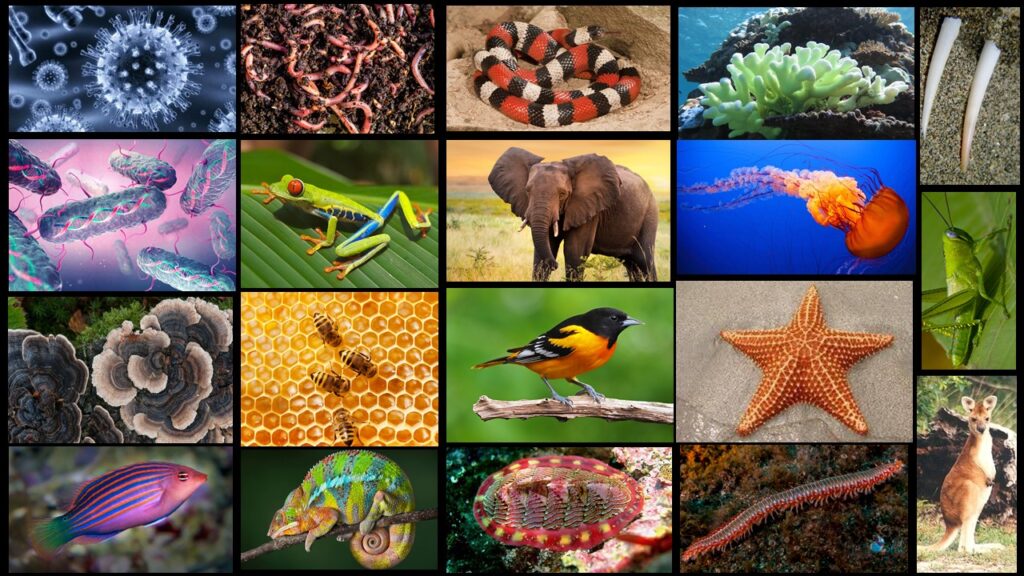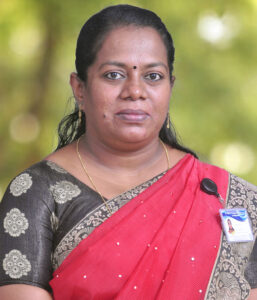
Welcome to our Department
Being a gateway to the diverse areas of modern biology, the Zoology Department emphasizes critical thinking and conceptual skills that come from an understanding of how scientific information is obtained and evaluated and of how this information can be applied to societal issues. The Department of Zoology started functioning as a collegiate department in 1952, six years after the inception of St. Albert’s College as a second grade college in 1946.
Vision
- To inculcate an awareness to explore, understand and conserve animal diversity.
- By strengthening the teaching learning process through innovative practices, the department will stimulate the spirit of scientific enquiry and discovery in academics.
Mission
- To involve the department in community-based and outreach activities, whenever and wherever possible.
- Encourage the students to mould passion into profession.
Milestones
- 1952 – Year of Establishment and Commencement of UG programme – B.Sc Zoology
- 1992 – Prof. Joseph Leslie Nedungadan of Zoology department appointed as the eighth Principal
- 1995 – First department to established a job oriented UG programme – B.Sc Aquaculture
- 2002 – Designed the curriculum for M.Sc Zoology with Medical Microbiology and started the course for the first time in Mahatma Gandhi University.
- 2007 – Recognized by Mahatma Gandhi University [MGU] as a Research Centre in Zoology.
- 2012 – Prof. Harry Cleetus of Zoology department appointed as the fifteenth Principal.
- 2012 – One among the first departments to receive 5 year funds under the DBT Star College Scheme
- 2016 – Dr. M.L. Joseph of Zoology department appointed as the sixteenth Principal.
- 2016 – Dr. Vincent Terrence Rebello became the first Dean (Academics) after getting autonomy to the college.
- 2016 – Prof. K. J. Benny became the first CoE after getting autonomy to the college.
- 2016 – Dr. Asha Raj become first doctoral student of this department to get Ph.D. in Zoology from MGU.
- 2019 – Recognized by Kerala University of Fisheries and Ocean Studies [KUFOS] as a Research Centre in Microbiology.
- 2019 – Certificate course started in ‘Basic Microbial Techniques.’
Programmes Offered
- B.Sc Zoology with Subsidiary Botany and Chemistry.
- B.Sc Subsidiary Zoology course to students of Botany, Aquaculture and Industrial fisheries (SF).
- M.Sc Zoology with specialization in Medical Microbiology (SF).
- Open Course in Human Health, Nutrition, Public health and Sanitation to UG students of other department.
- Ph.D. in Zoology (Affiliated to Mahatma Gandhi University [MGU], Kottayam).
- Ph.D. in Microbiology (Affiliated to Kerala University of Fisheries and Ocean Studies [KUFOS], Kochi).
- Certificate course in ‘Basic Microbial Techniques.’
Department at a glance
A central theme that stitches together the diverse group of faculty and students in our department is a shared value in promoting research and teaching that integrates knowledge and understanding across levels and scales of Zoology. We are interested in the intersections and integration of biological processes across levels. We view this vertical integration as central to our identity. Our research spans Toxicology, Genetics, Genomics, Physiology, Ecology, Planktonology, Systematics, and Medical Micro biology. We are home to enormous collections of sponges, coelenterates, annelids, arthropods, echinoderms, fishes, birds, reptiles and mammals from around the world.
Message from the Head of the Department
 Zoology refers to the branch of science that deals with the study of the habits, habitats, structure and classification of animals. It is known as the proverbial “Noah’s Ark,” as it protects the world’s dwindling ecosystem through conservation programmes. It is an immensely important stream of biology that in certain ways, improves human lives. The Department of Zoology is one of St. Albert’s College’s oldest departments, having been established in 1952 as an undergraduate programme and then promoted to a research level in 2007. The department offers Bachelor’s, Master’s, and Doctoral degrees. Once every three years, the curriculum is updated to meet the needs of higher education and work opportunities. Alumnae from our department have created a name for themselves in a variety of disciplines all across the world. The department is enriched with unique collection of specimens in the museum and well-equipped labs. Our department works hard to create an environment that enables teaching and research in critical areas of animal science to attain highest level of excellence. Staff and students work on a wide range of organisms, from the molecular to the ecological level, and are passionate about them. In addition, department collaborates with both government and non-government groups to carry out numerous science programmes. We provide training to our students by ensuring their participation in a variety of events, such as national and international seminars, which are held on a regular basis to keep students’ knowledge up to date. We prioritise biological literacy in our teaching and outreach initiatives because we recognise the importance of science and biology in the lives of citizens today and future. The Department strives to give substance to the vision of its founding fathers. Every year, a large number of young people graduate from its doors with not only degrees but also life-enhancing skills: these are the measures of its success.
Zoology refers to the branch of science that deals with the study of the habits, habitats, structure and classification of animals. It is known as the proverbial “Noah’s Ark,” as it protects the world’s dwindling ecosystem through conservation programmes. It is an immensely important stream of biology that in certain ways, improves human lives. The Department of Zoology is one of St. Albert’s College’s oldest departments, having been established in 1952 as an undergraduate programme and then promoted to a research level in 2007. The department offers Bachelor’s, Master’s, and Doctoral degrees. Once every three years, the curriculum is updated to meet the needs of higher education and work opportunities. Alumnae from our department have created a name for themselves in a variety of disciplines all across the world. The department is enriched with unique collection of specimens in the museum and well-equipped labs. Our department works hard to create an environment that enables teaching and research in critical areas of animal science to attain highest level of excellence. Staff and students work on a wide range of organisms, from the molecular to the ecological level, and are passionate about them. In addition, department collaborates with both government and non-government groups to carry out numerous science programmes. We provide training to our students by ensuring their participation in a variety of events, such as national and international seminars, which are held on a regular basis to keep students’ knowledge up to date. We prioritise biological literacy in our teaching and outreach initiatives because we recognise the importance of science and biology in the lives of citizens today and future. The Department strives to give substance to the vision of its founding fathers. Every year, a large number of young people graduate from its doors with not only degrees but also life-enhancing skills: these are the measures of its success.
Ms. Nimila P J
Head of the Department
